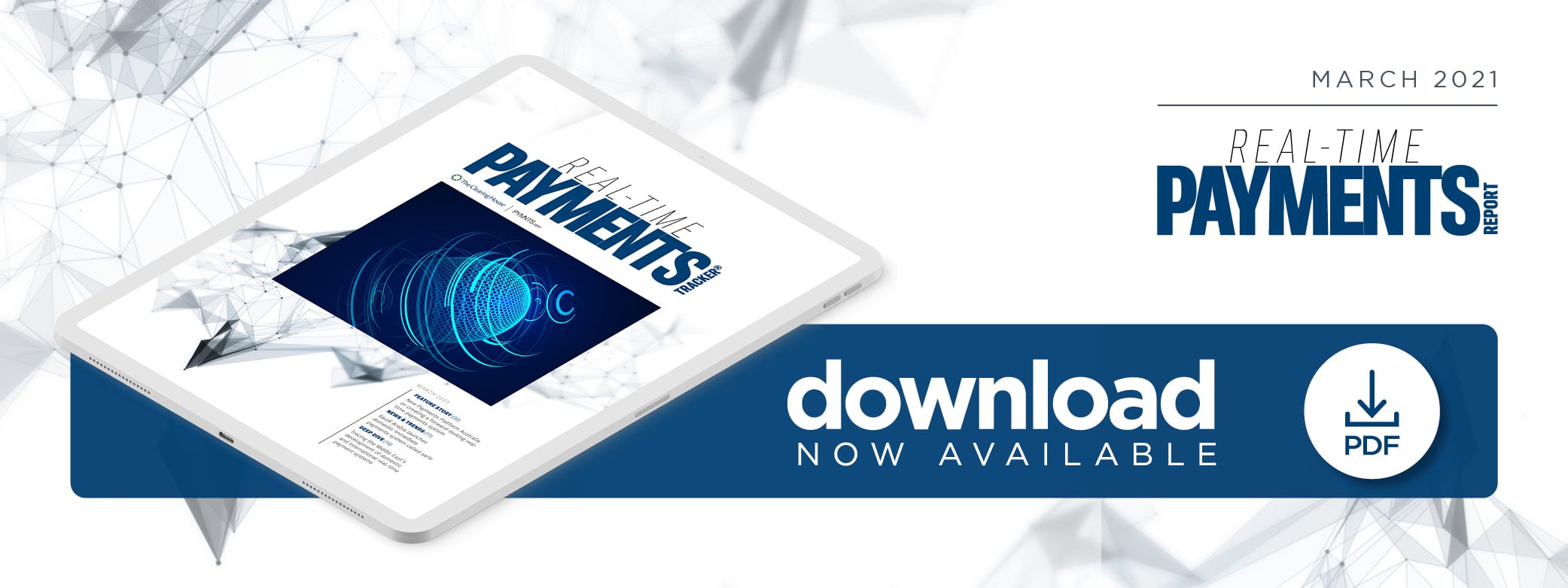Deep Dive: Taking The Temperature Of The Middle Eastern Real-Time Payments Landscape

Many nations have been joining the real-time payments scene as they catch on to the benefits these systems offer. Fifty-six countries had their own immediate payments systems up and running in 2020 — a far cry from the 14 that said they had them in 2014. Interest in real-time payments rails has been particularly robust in the Middle East, where various faster payments initiatives have gone live or are nearing their debuts.
Digital payments as a whole are becoming more commonplace across the region, and certain Middle Eastern governments are actively working to encourage a shift away from cash. Saudi Arabia is aiming to have 70 percent of the nation’s transactions handled digitally by 2030, for example. Consumers also appear to be receptive to these changes, with many shoppers turning to eCommerce for their purchasing needs. Predictions made in 2018 held that the regional eCommerce market would rise from $26.9 billion to $48.6 billion in 2022, and the pandemic is believed to be accelerating that trend. A May 2020 survey found that 53 percent of Middle Eastern consumers had been using mobile shopping more heavily at that point in the public health crisis, for example.
Consumers’ and businesses’ demands are also poised to grow beyond simply seeking access to digital payments, as many are likely to see advantages in using real-time electronic payment methods. Numerous Middle Eastern countries that have immediate transaction systems in place have been experiencing significant volume growth, and others are working to roll out new systems. This Deep Dive examines real-time payments’ status in the Middle East, including consumers’ and businesses’ demands for these services, the growth of established rails and countries’ efforts to launch new systems.
Consumer And Business Demand
Immediate payment services can confer a multitude of benefits to consumers and businesses alike. Users can often access such payments systems via mobile apps that allow them to send money to recipients identified by their mobile phone numbers rather than their bank account details. Offerings like these can satisfy consumers who want fast, easy ways to shop online as well as those who use their mobile phones to pay friends or brick-and-mortar retailers. Such options can spare consumers from carrying cash or cards, and the appetite for electronic payment methods can be especially high in some countries. Seventy-one percent of UAE consumers are already using digital methods to make payments in stores, for example. Employees also often want real-time payments access because it allows them to receive their earnings immediately and avoid potentially painful waits for money to settle into their bank accounts.
Immediate transactions’ advantages extend beyond just use cases for consumers. Businesses also have the opportunity to streamline B2B transactions by pairing real-time payments with digital invoicing options and request-to-pay features. These options could help companies ensure that their payments are attached to relevant data, leading to swifter reconciliation. Accelerated transaction speeds can also help firms better manage liquidity.
Around The Middle East’s Domestic Real-time Payments Scene
Many central banks in the region are attuned to these benefits and have been working to provide convenient, rapid transactions for consumers and businesses. Several countries in the region are debuting systems, but others have taken advantage of immediate payments systems for several years. Bahrain launched an immediate payments service in 2015, for example, and has recently seen significant growth. The volume of transactions made via its network rose 657 percent year over year in 2020, and research conducted last April and May found that the value of these payments had tripled by that point.
Turkey has been in the real-time payments space even longer than Bahrain. It launched its Retail Payment System (RPS) in 2013, and the network marked 25 percent year-over-year growth in both the average value and volume of payments made via the service in 2020.
Other nations have taken note of real-time services’ success in the region and are quickly rolling out offerings of their own. Jordan joined the scene in October 2020, for example, launching its real-time inter-bank payment system, CliQ. The Jordan Payments and Clearing Company, which manages the service, intended to make the solution convenient enough that it would persuade Jordanians to begin using it rather than cash. The company also expected the system to make financial transactions faster and more efficient and reduce liquidity pressures. Saudi Arabia launched a new rail — Sarie — in February, and the nation’s central bank expects the service to play a key part in the country’s efforts to foster financial inclusion, reduce cash-handling costs and otherwise keep its financial system up to date.
Some countries are giving touch-ups to their existing real-time networks. The UAE, for example, adopted a temporary transaction system in 2019 that could immediately settle domestic payments of up to 10,000 UAE dirhams ($2,723) and that leverages the country’s existing real-time gross settlement (RTGS) system infrastructure. The UAE is still working to develop and launch a more robust, long-term real-time payments system, however, and is evaluating vendors to assist in the effort.
The Focus Of Real-time Payments Expands
Middle Eastern countries are still advancing new real-time payments use cases, and some are considering more than just their domestic markets when planning for the future. Many are turning more attention to streamlining how money moves across borders within the region, and a flurry of activity in this regard occurred last year.
Cross-border payments are important in the Middle East, where transactions across Gulf Cooperation Council (GCC) countries can hit $2 trillion annually. Rapid payment flows may be needed to optimally serve consumers and businesses transacting across borders, and this led the Arab Monetary Fund to unveil a real-time regional multicurrency clearing and settlement platform called Buna in 2020 to facilitate intercountry trade and investment. The GCC Payment Systems Company (GPC) convened its first board meeting that year also. GCC central banks own and fund the GPC and have charged it with running payments services that include GCC-RTGS, which links with each country’s domestic RTGS system to facilitate swifter, more streamlined cross-border transactions.
These nations’ efforts suggest that the rising demand for immediate transactions in the region will only grow. Central banks in the Middle East appear to be heeding the call for systems that can help consumers and businesses make swift, digital transactions — domestically and across borders — as more and more commerce and financial activities are conducted digitally.
